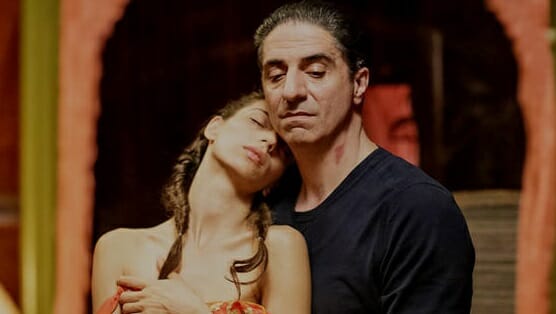
The term “genocide” was first coined in 1944 to define the systematic eradication of a group of people. More than seven decades later, its use—except when referring to the Jewish holocaust during WWII—remains a political hot button. Just ask Pope Francis. He recently referred to the extermination of approximately 1.5 million Armenians at the hands of the Turks during the waning days of the Ottoman Empire as the first genocide of the 20th century. The use of the word by the Pope has sent the Turkish government into an uproar because it does not officially recognize the genocide and purports that the killings happened in the midst of a civil war.
The new film 1915, written and directed by Armenian-American filmmakers Garin Hovannisian and Alec Mouhibian, purposely steps right into the middle of this loaded context. The film’s release date is timed to the 100th anniversary of the largely forgotten bloodshed, which commenced on April 24, 1915—a night during which more than 200 Armenian intellectuals were rounded up, deported and eventually executed. While the film over-edifies on occasion, the first-time directors smartly couch the larger political theme in a meta story. Hovannisian and Mouhibian build a tense film with moments of genuine suspense and psychological thrills, all while touching on the larger issues of memory, truth and denial.
1915 begins heavy-handedly: On a Los Angeles stage is theater director Simon (Simon Abkarian), who’s in the middle of a cast pep talk before a one-night-only performance of his play on the Armenian tragedy. The speech is dramatic—you’d expect nothing less from a theater director. He tells the actors, “Denial ends today,” and “Tonight, the fate of the dead will be in your hands… Bring them back to life or you’ll die with them.” Simon’s sermonizing is emphasized by Serj Tankian’s (System of a Down) score, which distracts with a rush of violins and the orchestral swells during the monologue. It’s all a bit too much, too soon.
Thankfully, after this rocky start, the filmmakers largely find their footing to deliver riveting storylines that provide important history lessons along the way. During this final rehearsal, protesters surround the theater outside. Inside, strange occurrences cause an unease among the cast, which includes Simon’s wife Angela (Angela Sarafyan) and James (Sam Page), a Hollywood film star testing his stage mettle. James begins to question Simon’s Svengali-like hold over Angela and, as the mystery unfolds, the director’s other reason for mounting the play proves to be just as personal and profound.
1915’s play-within-a-film device delivers digestible bits of background information through a love story between the production’s lead characters: a Turkish soldier and a married Armenian woman. The film also includes interstitial documentary elements, including new and old family photos, newspaper clippings and other materials that emphasize the categorical denial of Armenian eradication. Other aspects of 1915 prove a little more head-scratching, especially the inclusion of a cross-dressing character that seems added only for shock value, and Angela’s abrupt shift in personality toward the end of the film.
The theater serves as a perfect backdrop for the onscreen action, with Leigh Lisbão Underwood’s cinematography and Michael Fitzgerald’s production design taking full advantage of the old, French baroque-inspired setting. The offices and rooms are dripping in dark, rich gold and maroon tones, adding weight to the aura of mystery and fading memories.
At its core, 1915 is a ghost story in which Simon and Angela are burdened by their pasts on macro- and micro-levels. The creepy happenings throughout the rehearsal are credited to the age of the theater and the stress of the opening on the actors, but Hovannisian and Mouhibian leave room for the viewer’s imagination to draw his or her own conclusions as to whether the specters are metaphorical or metaphysical. However, during the film’s denouement, 1915 dips again into melodramatic territory, the performers overplaying heavier moments. The film ends on an almost mystical, yet hopeful note, as the filmmakers not-so-subtly merge past and present truths for the characters—and the audience—to move beyond an ugly history.
Directors: Garin Hovannisian and Alec Mouhibian
Writers: Garin Hovannisian and Alec Mouhibian
Starring: Simon Abkarian, Angela Sarafyan, Sam Page, Nikolai Kinski, Debra Christofferson and Jim Piddock
Release Date: April 17, 2015 in limited release; available on VOD on April 22
Christine N. Ziemba is a Los Angeles-based freelance pop culture writer and regular contributor to Paste. You can follow her on Twitter.